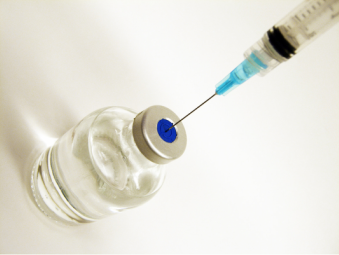http://seattle.cbslocal.com/2015/03/19/report-woman-dies-after-receiving-yellow-fever-vaccine
PORTLAND, Ore. (CBS Seattle) – A woman from Oregon had a fatal reaction to the vaccine for yellow fever, a report about the case confirmed.
The woman was in her 60s and was healthy before receiving the vaccination. According to a report from the Centers for Disease Control and Prevention obtained by LiveScience, the woman wanted to protect herself from yellow fever before embarking on a trip to South America. Six days after receiving the shot, she suffered from vomiting, diarrhea, and shortness of breath and was admitted into a hospital emergency room.
According to the report, ten hours after being admitted, her condition worsened. She was eventually put on a ventilator and developed heart damage and kidney failure. She died three days later while still in the hospital.
An autopsy revealed she had a tumor in her thymus. The thymus is a specialized organ of the immune system, located near the heart. She was not diagnosed with the tumor prior to her death. The autopsy also revealed that she has yellow fever virus genetic material in multiple organs and in her blood.
Doctors said she died from yellow fever vaccine-associated viscerotropic disease. It is a serious reaction to the yellow fever vaccine which caused the virus replicates out of control. This reaction is rare. The Centers for Disease Control and Prevention say four cases are confirmed out of every 1 million vaccines that are distributed.
People are more likely at risk if they are 60 or older, or have a disease in their thymus. The Centers for Disease Control and Prevention say if the disease was caught before her vaccination, she would not have been recommended to receive the vaccine.
Thymomas is very rare and there is no recommended screening for it.
The Center for Disease Control and Prevention say that yellow fever is spread by mosquitoes and occurs in tropical areas of South America and Africa. Symptoms of the disease range from mild fever to liver disease. Fatality can occur in 20 to 50 percent of the cases. It is recommended to get vaccinated if people are living in or plan to travel to South America or parts of Africa.
The CDC noted that the risks of getting a vaccine usually outweigh the risks of getting the disease.
“When determining whether a patient should receive yellow fever vaccine, the patient and clinician should discuss the risk for travel-associated yellow fever disease as indicated by season, destinations and duration of travel, likelihood of exposure to mosquitoes while traveling, and vaccination status,” the researchers said.
PORTLAND, Ore. (CBS Seattle) – A woman from Oregon had a fatal reaction to the vaccine for yellow fever, a report about the case confirmed.
The woman was in her 60s and was healthy before receiving the vaccination. According to a report from the Centers for Disease Control and Prevention obtained by LiveScience, the woman wanted to protect herself from yellow fever before embarking on a trip to South America. Six days after receiving the shot, she suffered from vomiting, diarrhea, and shortness of breath and was admitted into a hospital emergency room.
According to the report, ten hours after being admitted, her condition worsened. She was eventually put on a ventilator and developed heart damage and kidney failure. She died three days later while still in the hospital.
An autopsy revealed she had a tumor in her thymus. The thymus is a specialized organ of the immune system, located near the heart. She was not diagnosed with the tumor prior to her death. The autopsy also revealed that she has yellow fever virus genetic material in multiple organs and in her blood.
Doctors said she died from yellow fever vaccine-associated viscerotropic disease. It is a serious reaction to the yellow fever vaccine which caused the virus replicates out of control. This reaction is rare. The Centers for Disease Control and Prevention say four cases are confirmed out of every 1 million vaccines that are distributed.
People are more likely at risk if they are 60 or older, or have a disease in their thymus. The Centers for Disease Control and Prevention say if the disease was caught before her vaccination, she would not have been recommended to receive the vaccine.
Thymomas is very rare and there is no recommended screening for it.
The Center for Disease Control and Prevention say that yellow fever is spread by mosquitoes and occurs in tropical areas of South America and Africa. Symptoms of the disease range from mild fever to liver disease. Fatality can occur in 20 to 50 percent of the cases. It is recommended to get vaccinated if people are living in or plan to travel to South America or parts of Africa.
The CDC noted that the risks of getting a vaccine usually outweigh the risks of getting the disease.
“When determining whether a patient should receive yellow fever vaccine, the patient and clinician should discuss the risk for travel-associated yellow fever disease as indicated by season, destinations and duration of travel, likelihood of exposure to mosquitoes while traveling, and vaccination status,” the researchers said.
